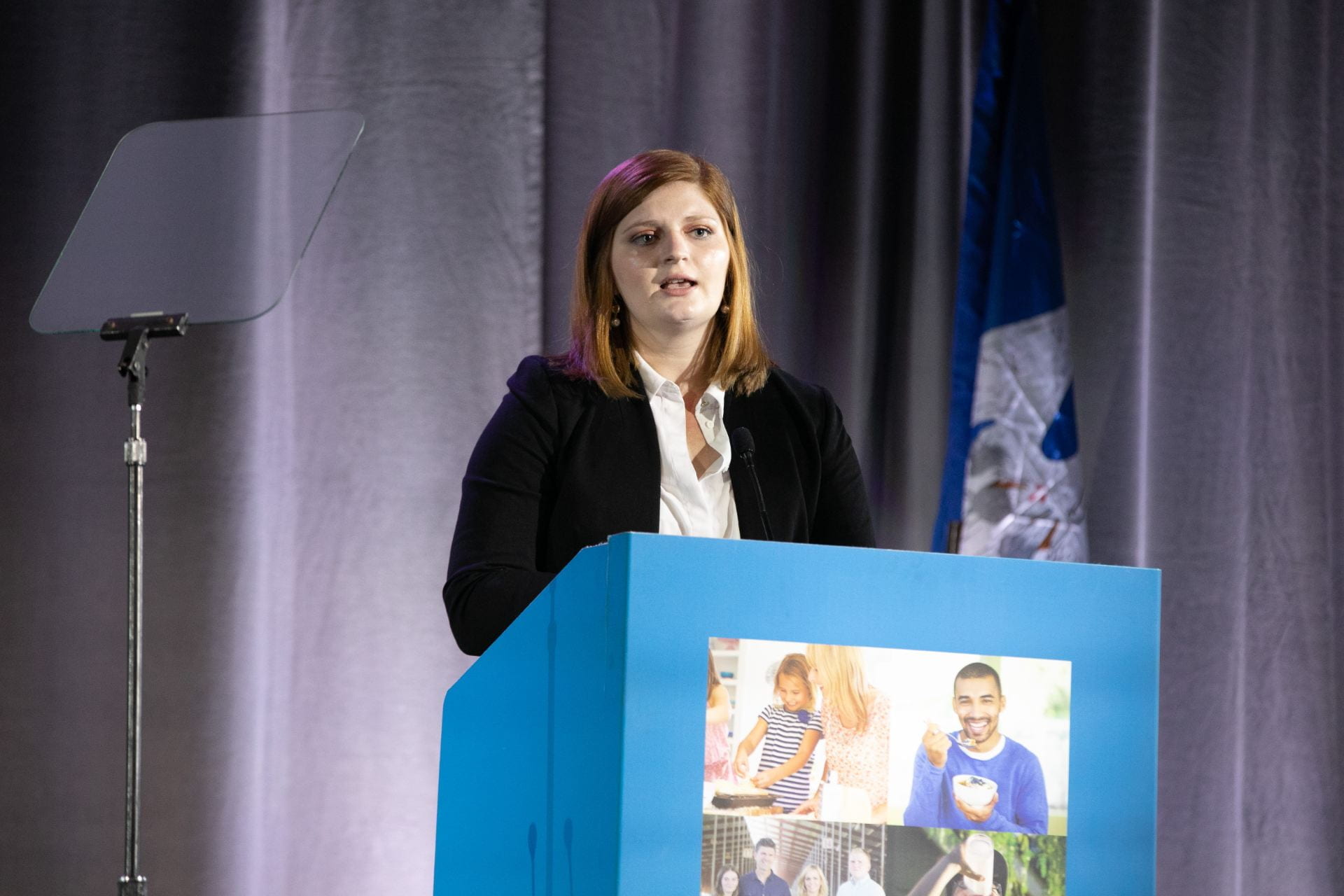Alumni in Action: Miquela Hanselman
Miquela Hanselman grew up on a dairy farm in Delaware County, New York, and has always wanted a career where she could advocate for dairy farmers like her family. She first completed a B.S. in Animal Science, and then as a Food Systems and Health student with Cornell’s MPH Program, Miquela focused on food policy, food safety, and dairy sector communications. For her applied practice experience, Miquela worked with Dairy Management, Inc. in Rosemont, Illinois, facilitating internal communication between the product research team, the global sustainable nutrition research team, and other departments including farmer relations and education. In her final semester, Miquela wrote a capstone report called “A Communication Strategy for the United States Dairy Industry – A Perspective on its Role in the Greater Food System.”
After graduating last May, Miquela became Manager of Regulatory Affairs for the National Milk Producers Federation, a trade association based in Washington, DC that represents dairy cooperatives and their dairy farmer owners across the United States on regulatory, food safety, and policy issues. While some of her colleagues are registered lobbyists who work more closely with Congress, Miquela works mostly with regulatory agencies—the United State Department of Agriculture (USDA), Food and Drug Administration (FDA), the Environmental Protection Agency (EPA), and others. She attributes her ability to network and communicate effectively to much of what she learned to value in the MPH Program— “so much of this work is about the relationships you have with people”, she says. “When people understand both your passion and knowledge, they respect you as an expert and colleague. That’s how you can make real change.”
In her role, Miquela works on issues ranging from environmental management to nutrition to food safety to animal health, speaking with agency staff and reviewing federal policy language on a daily basis. “Every day is different,” says Miquela. When a proposed rule, or a bill, is published, Miquela and her team review both the content and intent of the proposal, then submit comments to best advocate for dairy cooperatives and dairy farmers. Recently, Miquela and her colleagues worked with the EPA on the new Waters of the United States rule, and they’re now working with the USDA and FDA on the Dietary Guidelines for Americans. She is also working with the USDA as they rewrite the Bovine Tuberculosis Eradication Program, convening a task force of NMPF’s members and holding webinars with world-renowned experts to evaluate science, assess potential policy priorities, and understand the needs of farmers and veterinarians to help advocate for their priorities in the rule.
“I love it,” she says, of her work with the National Milk Producers Federation. “It’s the perfect mix of everything I wanted to do—being able to represent dairy farmers, and also use what I learned in my MPH and undergraduate program to make a change. I strive to use my knowledge to help inform consumers where their food comes from, and understand what goes into producing it.”
With the arrival of the COVID-19 pandemic, Miquela is working remotely, back on her family’s dairy farm. She says all the agencies are doing their best to be as flexible as possible, while also maintaining safety guidelines, to help everyone in these trying times. The FDA, for instance, is releasing documents about COVID-19 safety protocol in food processing plants. The Federation is also working closely with the federal officials to obtain more Personal Protective Equipment for food processing plants.
Miquela says she’s known as the “public health person” among her colleagues. This means, she says, understanding how interconnected food production, the environment, and public health really are—how when you pull one lever, so many others are pulled as well. For instance, when she’s working on a proposed regulation for animal health, she can better understand the potential impacts to water for example. She attributes this understanding to the MPH Program, which “helped me see a big picture, and also take it down to a smaller level.”

